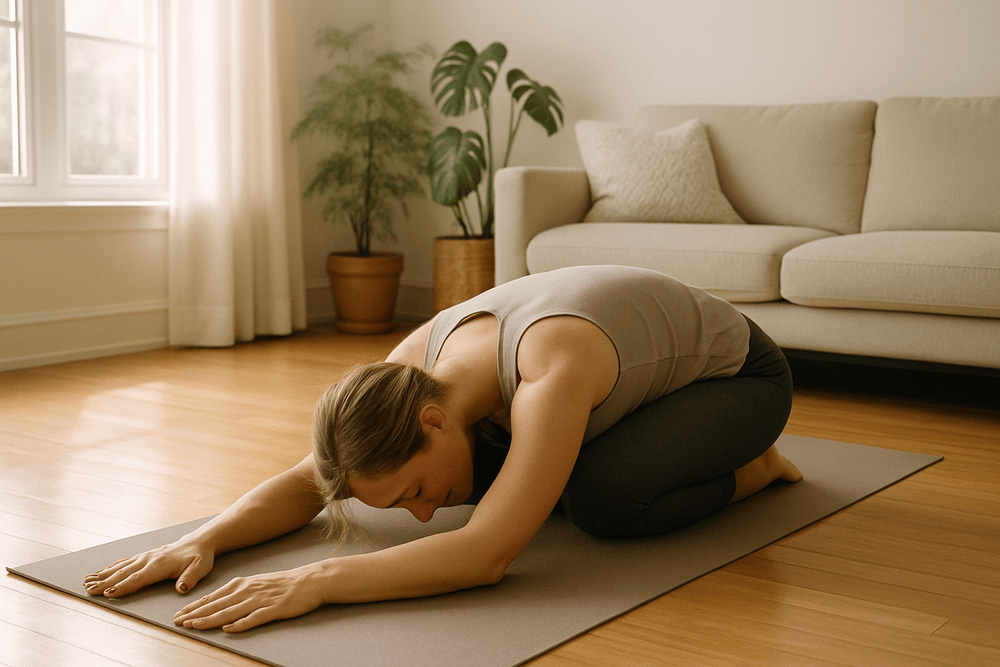Unlocking the Benefits of Yoga for Mind, Body, and Stress Management
Aiden Reese
2025-11-10
6 min read

Yoga has transcended its roots as an ancient practice to become a modern-day health and wellness staple. Everywhere you look, people are rolling out their yoga mats, seeking its unique combination of physical, mental, and emotional benefits. But yoga is much more than a trend or fitness regime. It is a holistic discipline that can transform your relationship with your body, ease the pressures of a demanding life, and nurture your mental well-being. This blog takes a closer look at how yoga improves your mind, body, and stress management, offering insights that may inspire you to build a meaningful yoga practice of your own.
The Physical Benefits of Yoga
When we think of yoga, the first image that comes to mind might be someone gracefully holding a pose. While yoga is synonymous with flexibility and graceful movements, its physical benefits extend far beyond just looking poised on a mat.
Improved Strength and Flexibility
Yoga incorporates an array of postures that engage multiple parts of the body. Dynamic sequences such as Sun Salutations build strength and promote flexibility by stretching key muscle groups while simultaneously toning them. Poses like Warrior II and Downward Dog work to enhance core stability, improve balance, and develop overall muscle tone. Over time, regular practice can improve your range of motion and reduce stiffness, preventing injury and increasing physical comfort.
Greater Cardiovascular Health
Although yoga might appear gentle, it can offer substantial cardiovascular benefits. Practices that include faster-paced sequences, such as Vinyasa or Power Yoga, elevate your heart rate, contributing to better circulation and improved heart health. Even gentler practices, including Hatha Yoga, can positively affect your nervous system, supporting healthy blood pressure levels and lowering your overall risk of chronic cardiovascular conditions.
Alleviation of Chronic Pain
One of the lesser-discussed physical advantages of yoga is its potential to ease chronic pain. Those suffering from conditions like lower back pain, arthritis, or migraines often find relief through yoga's mindful stretching and targeted exercises. Research suggests that regular yoga can reduce inflammation and tension, ultimately preventing pain from becoming debilitating.

Mental Clarity and Emotional Resilience
While the physical advantages can be seen and felt, yoga holds equal, if not greater, power over our mental health. It fosters an unparalleled sense of emotional stability and mental clarity for people who incorporate it into their routines.
Enhancing Focus and Cognitive Function
Yoga emphasizes deep, controlled breathing and conscious movement, practices that direct your attention inward and onto the present moment. This active focus strengthens your ability to concentrate, improves memory, and sharpens cognitive performance. After a yoga session, many practitioners report experiencing heightened alertness and clarity, with improved problem-solving capabilities that extend into daily tasks.
Emotional Regulation
The meditative aspects of yoga go beyond deep breathing, cultivating emotional awareness and a balanced state of mind. Practices such as Yin Yoga or restorative poses encourage introspection, helping you to better explore and process your emotions. Over time, this emotional self-awareness contributes to improved emotional regulation - a critical skill that can benefit both your professional and personal life.
Combating Anxiety and Depression
Yoga has become increasingly prescribed as a complementary therapy for anxiety and depression. Its impact on the mind is, in part, physiological: yoga lowers cortisol levels (a hormone associated with stress) while boosting serotonin – our "feel-good" chemical. Controlled breathing practices, such as Pranayama, activate the parasympathetic nervous system, helping to stabilize heart rate and induce relaxation. Beyond biology, yoga offers a respite from constant mental chatter, giving individuals a framework for peace and perspective.
Yoga’s Role in Stress Management
At its core, yoga is about harmony between the mind, body, and breath. This makes it one of the most effective practices for coping with stress in an increasingly chaotic world.
Stress Reduction Through Mindfulness
When was the last time you paused, took a deep breath, and allowed yourself to be completely present? Yoga encourages mindfulness, a practice that draws attention away from stressors and into the moment. By consciously aligning your breath with movements, yoga forces you to slow down and reset your mental state. This approach not only lowers immediate feelings of stress but also creates resilience, equipping you to face future stressors with ease.
Improved Sleep Quality
Stress and sleep are often intertwined, with one aggravating the other. Practicing yoga directly impacts your ability to relax, making it easier to fall asleep and stay asleep through the night. Gentle poses before bedtime, such as Child’s Pose or Legs-Up-The-Wall Pose, promote physical relaxation while quieting an overactive mind. Over time, better sleep hygiene adds to your overall quality of life, reducing fatigue, irritability, and even stress-related illnesses.
Building a Consistent Stress-Relief Practice
Unlike many stress management techniques that might feel prescribed or rigid, yoga is adaptable. Whether you have 10 minutes for a quick, calming series of poses or an hour for a full class, yoga fits seamlessly into your schedule. With countless online video tutorials and physical yoga studios available, there’s no shortage of resources to support building a meaningful yoga practice tailored to your needs. Yoga is not about touching your toes or mastering an elegant pose. It’s about what you discover in the process. Practicing yoga allows you to unlock immense benefits that span from increased flexibility and strength to improved mental clarity and emotional equilibrium. Whether you're seeking a way to alleviate stress, improve your physical health, or establish a clearer mind, yoga offers a powerful solution that meets you wherever you are. Why not roll out a mat and give yoga a try today? Even a few minutes of conscious breathing or stretching can create a positive ripple across your mind, body, and day. Start exploring the practice and experience the transformation for yourself.



